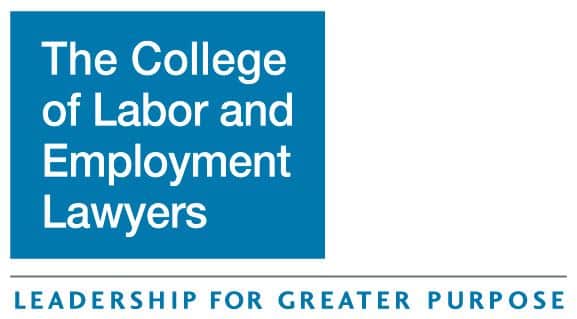What Does Workplace Discrimination Entail?
Discrimination in the workplace is prohibited under state and federal laws. The U.S. Equal Employment Opportunity Commission (EEOC) defines “discrimination” as treating an individual less favorably or differently for some reason. The EEOC enforces federal laws that provide protection in the workplace against discrimination on the basis of religion, race, color, national origin, sex, disability, age, or genetic information. (Employment discrimination on the basis of genetic information occurs when an employer unlawfully shares an employee’s genetic information, such as the health condition of a family member.)
What Forms Can Discrimination Take in the Workplace?
Employment discrimination can and does occur in many forms. It may involve:
- Harassment of employees by co-workers, managers, or others in the workplace because of any of the protected characteristics, such as race, disability, age, or sex (including gender identity, sexual orientation, and pregnancy);
- Unfair treatment of an employee because of any protected trait;
- Retaliation against an employee for complaining about discrimination or assisting with a discrimination lawsuit or investigation;
- Denial of reasonable workplace changes requested by an employee because of a disability or religious beliefs;
- Improper disclosure of or questions about an employee’s medical or genetic information;
- Denying opportunities to a job candidate or employee because or he or she is married to or associated with someone of a particular religion, race, or national origin, or a person who is disabled; or
- Asking inappropriate, unlawful questions during a job interview.
To What Aspects of Employment Do Discrimination Laws Apply?
The Missouri Human Rights Act prohibits discrimination in any aspect of employment on the basis of an applicant or employee’s color, race, ancestry, national origin, religion, sex, disability, or age. As stated by the Missouri Department of Labor, these rules apply to:
- Advertising jobs
- Testing applicants
- Recruitment
- Hiring
- Firing
- Transfers
- Promotions
- Layoffs and recalls
- Assignment or classification of employees
- Pay and other compensation
- Fringe benefits
- Training and apprenticeships
- Use of company facilities
- Disability leave
- Retirement plans
- Other conditions and terms of employment
What Are the Categories of Employment Discrimination Under Missouri Law?
The Department of Labor classifies discrimination in three areas (employment, housing, and public accommodations) and several different types, which include the following.
Age Discrimination
In Missouri, individuals more than 40 years and less than 70 years of age are protected from age-based employment discrimination under the Human Rights Act. These protections apply to both applicants and employees. Employers are prohibited from discriminating against persons in this age group in any aspect of employment, including hiring, training, promotions, job assignments, layoffs, and firing.
Generally, it is unlawful to include any age specifications, limitations, or preferences in any job advertisement or notice. The exception is when age is a bona fide occupational qualification that is reasonably necessary to business operations.
Employers interviewing applicants are not allowed to ask for the applicant’s birth date or age. They may not ask how long an applicant plans to work before retiring. Employers may ask if an applicant is over the age of 18 and what career goals he or she has.
Religious Discrimination
It is illegal to discriminate against an individual in any term or condition of employment based on religion under the Missouri Human Rights Act. This law applies to state, local, and private employers with six or more employees, including temp services, employment agencies, and labor organizations. However, it does not apply to associations or corporations entirely owned and operated by religious groups that require all their employees to be members of a particular sect or religion.
Under the act, employees cannot be required to participate or prevented from participating in any religious activity as a condition of employment. Employers must allow employees to engage in their chosen religious expression and reasonably accommodate their sincerely held religious practices unless it would create an undue hardship for the employer. Accommodations may include flexible scheduling, shift swaps, job reassignments, modification of workplace policies and practices, and other reasonable adjustments in the work environment.
Racial Discrimination
The Human Rights Act protects individuals against employment discrimination on the basis of color or race. Employers with six or more employees are subject to the act, along with all businesses that offer services or goods to the general public, including state and local government agencies. This state law prohibits ethnic or racial slurs, derogatory comments, racial jokes, or any offensive physical or verbal conduct based on race or color. Employers have a duty under the law to take the appropriate measures to correct and prevent unlawful racial discrimination and harassment and a hostile work environment.
Discrimination based on race or color in compensation, or any employment terms, conditions, or privileges is also illegal. Racial discrimination may not be the basis of any differences or disparities in pay, benefits, training, job assignments, performance evaluations, discipline, discharge, or any other aspect of employment. Employees who are aware of racial discrimination in the workplace have a duty to report it.
Disability Discrimination
Under the Missouri Human Rights Act, an applicant or employee is protected against discrimination if he or she is a qualified individual with disabilities. In this context, “disability” means a physical or mental impairment that substantially limits a person’s ability to engage in one or more major life activities. An employee or applicant who has a record of such an impairment, or who is regarded as having such an impairment, and can perform essential functions of the job, with or without reasonable accommodations, is a qualified individual with disabilities and entitled to protection under the law.
Employers are required to make reasonable accommodations for known disabilities of applicants or employees, provided it does not impose undue hardship (significant difficulty or expense) on the business. They are not required to lower production or quality standards or to provide personal items such as hearing aids or glasses for disabled employees. Reasonable accommodations made by employers may include:
- Restructuring of jobs
- Reassignment
- Modification of work schedules
- Adjustment or modification of policies, training materials, or examinations
- Providing qualified interpreters or readers
- Modifying or acquiring equipment or devices
- Making existing facilities readily accessible and usable by disabled employees
National Origin or Ancestry Discrimination
Workplace discrimination based on national origin or ancestry involves treating an individual less favorably because of their ethnicity, place of origin, accent, or ethnic background or because of marriage or association with a person of a particular ethnicity or nationality.
Prohibition against this type of discrimination applies to all employment decisions, including recruitment, hiring, layoffs, and firing.
Although national origin and ancestry discrimination are unlawful in Missouri regardless of citizenship, individuals who are in the country illegally may be limited as to available remedies under the law.
Sexual Harassment and Discrimination
It is unlawful to discriminate against applicants and employees on the basis of sex in hiring, compensation, promotion, training, termination, or any aspect of employment. Employers are prohibited from:
- Discriminating due to pregnancy, childbirth, or related medical conditions;
- Gender-based harassment, including slurs, terms of abuse, hostile or denigrating written material, and negative stereotyping of women or men; and
- Sexual harassment involving sexually explicit behaviors, such as requests for sexual favors, unwanted sexual advances, and other physical or verbal conduct of a sexual nature.
Employees are protected under the Human Rights Act from compensation discrimination based on sex or gender. This protection applies to all forms of compensation, including salary, bonuses, overtime, profit sharing, stock options, vacation time, paid holidays, benefits, and allowances or reimbursement for gas, hotels, and travel expenses.
Retaliation
Employers may not retaliate against employees for filing claims of discrimination or participating in discrimination proceedings. Retaliation means taking an adverse action against a covered individual engaged in a protected activity. Those terms are described as follows:
- Adverse action: Examples of adverse actions that constitute retaliation in the workplace include refusal to hire, denial of promotion, termination, increased workloads, unjustified discipline, and unjustified negative evaluations or references.
- Covered individuals: These are individuals who have filed complaints of discrimination, participated in discrimination proceedings, or opposed illegal discriminatory practices in the workplace, and other individuals who are closely associated with them.
- Protected activity: This term can be defined as opposition to a practice the employee believes to be unlawful discrimination. Examples include refusing to obey an order an employee reasonably believes is discriminatory; lodging a complaint of discrimination with an employer; or threatening to file discrimination charges.
What Federal Laws Protect Employees Against Discrimination in the Workplace?
EEOC enforces several federal laws prohibiting harassment and discrimination in the workplace. These include:
- The Equal Pay Act of 1963: This legislation makes it illegal for employers to pay different wages to men and women performing equal work in the same workplace, or to retaliate against workers who complain or participate in EEOC proceedings.
- Title VII of the Civil Rights Act of 1964: This federal law makes discrimination based on race, color, national origin, religion, or sex illegal and protects employees from retaliation.
- The Pregnant Workers Fairness Act of 2022 (PWFA): This legislation requires employers to provide reasonable accommodations for covered workers affected by pregnancy, childbirth, and related medical conditions – provided they do not cause undue hardship for the employer – and protects employees against retaliation.
- Title I of the Americans with Disabilities Act of 1990 (ADA): When ADA was passed, it became illegal for state and local governments and private companies to discriminate against persons with disabilities in the workplace or to retaliate for complaints of discrimination.
- The Age Discrimination in Employment Act of 1967 (ADEA) prohibits employment discrimination based on age against individuals ages 40 and older and provides protection from retaliation.
- Title II of the Genetic Information Nondiscrimination Act of 2008 (GINA) makes it unlawful to discriminate against applicants or employees based on genetic information, such as genetic tests of the individual or family members, or disorders, diseases, or medical conditions of the individual or family members. It also provides protection against retaliation.
What Remedies Are Available to Victims of Employment Discrimination?
File a Complaint with the Missouri Commission on Human Rights
A person who has been subjected to unlawful discrimination in the workplace may file a complaint with the Missouri Commission on Human Rights (or, alternatively, with the U.S. Equal Employment Opportunity Commission). After filing the complaint, he or she may request a Notice of Right to Sue, which makes it possible to file a lawsuit against the responsible party in civil court. The Commission conducts an investigation based on the complaint. If discrimination is found, the case may be settled or heard by a Hearing Examiner, who will issue recommended findings and an order to the Commission. Possible remedies the Commission may order if discrimination is found include:
- Reinstatement
- Promotion
- Back pay (wages, benefits, and other compensation the employee would have earned had he or not been a victim of discrimination)
- Damages for pain and suffering, deprivation of rights, and other losses
If the injured party requests and receives a Notice of Right to Sue, the investigation stops, and the complaint is closed with the Commission.
Bring a Lawsuit in Civil Court
A victim of employment discrimination may seek compensation from the at-fault party or parties in civil court once a Notice of Right to Sue has been issued by the Missouri Commission on Human Rights. Common damages sought in employment discrimination claims include back pay, front pay (loss of future wages and benefits because of unlawful discrimination), job search and relocation costs, medical expenses, emotional distress, and reasonable attorney fees. If the employer’s conduct was particularly malicious or egregious, punitive damages may be awarded unless the defendant is a federal, state, or local government entity.
What Must You Prove to Prevail in an Employment Discrimination Lawsuit?
If you have been a victim of discrimination in the workplace, to recover compensation from responsible parties, you must prove the following four elements of your case:
- You are a member of a protected class: Discrimination is prohibited in the workplace on the basis of race, color, national origin, sex, religion, disability, age, and genetic information. You must show that the discrimination you suffered was based on one of those protected characteristics.
- An adverse employment action was committed against you: You must prove that something was done that substantially and negatively affected your employment, such as demoting you, reducing your pay, increasing your workload, or switching you to more difficult or less desirable work.
- At the time of the adverse employment action, you met your employer’s legitimate expectations: To counter the non-discriminatory reason the employer will give for the adverse employment action, you must show that you were performing your job duties satisfactorily at the time the action was taken.
- You were treated differently than other similarly situated employees outside your protected class: For example, if you are over the age of 40, and you were demoted while younger employees performing similarly or not as well as you were promoted, you must show this disparity in treatment.
FAQs About Workplace Discrimination
With frequently changing state and federal laws, both workers and employers understandably may have questions about what constitutes discrimination in the workplace. Here, we have answered some frequently asked questions on the subject.
What types of Questions Should Employers NOT Ask in a Job Interview?
In a pre-employment interview, certain questions should be avoided, as stated by EEOC. These include questions about the applicant’s marital status, sexual orientation, gender identity, future childbearing plans, and the number and ages of children and dependents.
Questions about religious beliefs or affiliations and an applicant’s disability are also prohibited. However, employers may ask applicants about reasonable accommodations they may need because of a disability that is either obvious or voluntarily disclosed.
What Rights Do Employees Have During and After Pregnancy?
Pregnant workers have the same rights to leave as other employees and should be treated the same. If temporarily disabled because of pregnancy, they must be treated the same as any other temporarily disabled worker. Depending on the situation, this could mean disability leave, unpaid leave, modified tasks, or alternative assignments. An employer may not require an employee who has given birth to remain on leave for an arbitrary period of time if the employee is physically able to perform the job and willing to return to work.
Is it Legal for Employers to Impose a Dress Code on Employees?
Employers are not prohibited from establishing a dress code, provided it applies to all employees of the firm or all employees within certain job categories. If a dress code imposed by an employer violates or conflicts with an employee’s religious practices, the employer must permit an exception or change the dress code at the employee’s request unless doing so would cause undue hardship for the company.
How Important Is it to Have an Experienced Employment Law Attorney Represent You?
If you are seeking justice and compensation for workplace discrimination, the attorney you choose to represent you may be the most important decision you make. Employment law is a complex, ever-changing legal area. An experienced employment lawyer who knows the law and understands the legal system can protect your rights and present your case in the best possible light. If you are a business owner facing allegations of workplace discrimination, a seasoned employment litigation attorney is best equipped to effectively handle your defense. Having skilled legal guidance is equally critical for companies to remain in compliance with state and federal employment laws and reduce the risk of liability.
At Riggan Law Firm, employment law is what we do. We have more than 30 years of combined experience. Our skilled legal team is dedicated to safeguarding the rights and interests of the clients we represent. If you need legal assistance with an employment discrimination matter, call us today at 314-528-9661.













